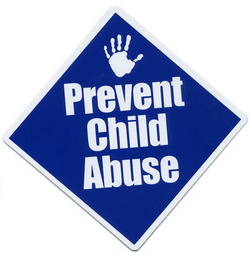If you discover that a child is being abused, or if a child comes right out and tells you, it can be an uncomfortable situation, and it is often difficult to find the “right thing” to say to them. Many times there is no “right thing” to say, but you can be prepared by knowing how to handle the situation. Here are some suggestions.
1. Avoid Denial and Remain Calm
If your actions, tone or words reveal a sense of denial or shock or disgust, the child may react by shutting down. You need to remain as calm and as reassuring as you possibly can. Don’t be afraid to talk about it. If children sense that you are afraid to talk, they will not bring it up and they will definitely not open up. Remember, children don’t benefit from “not thinking about it” or “putting things out of their mind.” They benefit from talking about their emotions and working through what they have experienced.
2. Listen to what they have to say and empathize with them
So many times, our natural inclination is to want to jump straight to problem solving or solution mode. A child who has been abused or neglected, and is willing to talk to you about it, is crying out to be listened to. Be a person that they can talk to, cry with and mourn with. Remember that empathy is not the same thing as feeling sorry for them.
Continue reading



 When you think about hurting kids, one of the first thing that comes to mind is children who have been abused or neglected. Over 1.2 million children suffer harm from child abuse or neglect per year. That equates to 17.1 children per 1,000 or approximately 1 in every 58 children. When children who are endangered by abuse or neglect are added to those figures, the numbers rise to over 2.9 million kids or 39.5 per thousand. That equates to one in every 25 children. The reach and magnitude of abuse and neglect are as varied as the forms of abuse and the types of children who experience it.
When you think about hurting kids, one of the first thing that comes to mind is children who have been abused or neglected. Over 1.2 million children suffer harm from child abuse or neglect per year. That equates to 17.1 children per 1,000 or approximately 1 in every 58 children. When children who are endangered by abuse or neglect are added to those figures, the numbers rise to over 2.9 million kids or 39.5 per thousand. That equates to one in every 25 children. The reach and magnitude of abuse and neglect are as varied as the forms of abuse and the types of children who experience it.

 The things we go through don’t always make sense. In the midst of our pain, it is hard to step back and ask what the purpose of it might be. Rest assured of the fact that when you are going through something difficult, God’s plan and God’s desire is to help you to grow stronger and wiser through that pain. It might not be easier to go through, but it is comforting, even in the throws of pain, to know that there is something good that can come out it.
The things we go through don’t always make sense. In the midst of our pain, it is hard to step back and ask what the purpose of it might be. Rest assured of the fact that when you are going through something difficult, God’s plan and God’s desire is to help you to grow stronger and wiser through that pain. It might not be easier to go through, but it is comforting, even in the throws of pain, to know that there is something good that can come out it.

 My mother died days after I turned six years old. For six years, my father raised myself and my three brothers by himself to fulfill a promise he had made to my mother. When I was twelve, my father remarried and we plunged head first into the world of step families. At the time, it all seemed so very normal to me at the same time all the while knowing that my family was different. There were some struggles and some hard times, but that’s family. That’s my story. We all have a story, and for those of us who did not grow up in “traditional families” often have stories marked by loss, pain and longing for something we felt like we should have had.
My mother died days after I turned six years old. For six years, my father raised myself and my three brothers by himself to fulfill a promise he had made to my mother. When I was twelve, my father remarried and we plunged head first into the world of step families. At the time, it all seemed so very normal to me at the same time all the while knowing that my family was different. There were some struggles and some hard times, but that’s family. That’s my story. We all have a story, and for those of us who did not grow up in “traditional families” often have stories marked by loss, pain and longing for something we felt like we should have had.